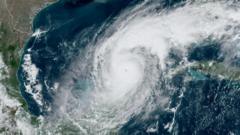By Sir Ronald Sanders
On May 25, a day before Guyana commemorates its 59th year of independence, the government of Nicolás Maduro says it intends to stage elections in Guyana’s Essequibo region. This territory, comprising nearly two-thirds of Guyana, lies entirely within its internationally recognized borders.
This is not a demonstration of democratic governance, but a politically charged act that challenges established international legal norms. It represents a serious escalation in Venezuela’s posture toward the territorial controversy—one that raises profound concerns about adherence to the rule of law and respect for the authority of the International Court of Justice (ICJ).
Essequibo has been a settled part of Guyana since the arbitral award of 1899, a legally binding decision rendered by an international tribunal comprising the Chief Justices of Russia, Britain, and the United States—the latter nominated by Venezuela itself. Venezuela not only participated in the proceedings but also hailed the award as a diplomatic success, ratifying it in its National Congress and benefiting from its expanded territory, including access to the mouth of the Orinoco River.
For over 60 years, the boundary was recognized and respected. Then, in 1962, Venezuela submitted a memorandum to the United Nations challenging the award, and in 1966, on the eve of Guyana’s independence, the two countries signed the Geneva Agreement. This Agreement provided for a series of steps to resolve the controversy, including ultimately granting the UN Secretary-General the authority to choose a final means of settlement should all others fail.
In 2018, following decades of inconclusive dialogue, the Secretary-General referred the matter to the ICJ—consistent with his authority under the Geneva Agreement. Guyana then initiated proceedings at the Court, requesting a ruling that the 1899 award is valid and legally binding.
Venezuela initially objected to the Court’s jurisdiction and declined to participate in the case. While it later filed written submissions, it has refused to accept the Court’s binding authority and continues to disregard its interim measures, most recently an order issued on May 1, 2025, which states: “Pending a final decision in the case, the Bolivarian Republic of Venezuela shall refrain from conducting elections, or preparing to conduct elections, in the territory in dispute, which the Co-operative Republic of Guyana currently administers and over which it exercises control.”
Despite this clear directive, Venezuela’s National Electoral Council has announced plans to elect eight deputies and a governor for Essequibo. Yet, no details have been provided about voter registration, polling stations, or administrative arrangements—unsurprising, given that Venezuela has no jurisdiction or administrative presence in the region of Essequibo or any part of Guyana.
To justify this act, the Maduro government cites a 2023 domestic referendum, which it initiated, conducted, and supervised without independent oversight. Based on the outcome of that unilateral process, the government now claims the authority to incorporate the Essequibo region into Venezuelan territory. Acting on this assertion, the National Assembly enacted the “Organic Law for the Defense of Guayana Esequiba,” which purports to formalize the creation of a new Venezuelan state. The law proposes that, pending the so-called installation of elected officials, the territory will be administered from the town of Tumeremo in Bolívar State, within Venezuela’s existing borders.
This raises a fundamental question: how can a state conduct elections in a territory it does not control? The answer is: it cannot, unless through occupation. Any attempt to enforce this plan would require Venezuela to enter and assert authority over sovereign Guyanese territory—an act that would violate not only the ICJ’s order but also the United Nations Charter and the Charter of the Organization of American States, both of which prohibit the threat or use of force to resolve territorial disputes.
This latest move appears to be driven less by enduring patriotic sentiment and more by geopolitical and economic calculations. The Essequibo region is rich in natural resources—gold, timber, freshwater, and oil—which have grown in strategic importance, especially against the backdrop of Venezuela’s deepening economic and political crisis. These considerations, rather than legal merit, seem to be shaping Venezuela’s recent actions.
Meanwhile, tensions on the ground are rising. Guyana’s defense authorities have reported cross-border provocations by Venezuelan forces, and the government has warned that participation in the May 25 vote could constitute a criminal offense under national law. Nearly 100,000 Venezuelan nationals now reside in Guyana—many of whom fled hardship at home. These already dislocated people should not be drawn into a manufactured conflict that endangers their safety and stability.
The international community must view this development with the seriousness it warrants. The ICJ is the agreed mechanism for resolving this long-standing dispute. Its jurisdiction must be respected, and its orders implemented. Any attempt to bypass the Court through unilateral acts erodes the international system for peaceful dispute settlement and threatens regional stability.
Caribbean nations, Latin American neighbours, and global partners who uphold international law must send a clear message: borders cannot be redrawn by domestic decree, and no state is exempt from legal accountability. Elections held outside the bounds of jurisdiction do not confer legitimacy; they invite conflict.
Guyana and Venezuela are bound by geography. Neither can relocate; both must find a path to coexistence. But peaceful coexistence cannot be built on unilateral actions or threats. It must be grounded in law, mutual respect, and diplomacy. The parties should await the ICJ’s ruling—and on that basis, strive to build a collaborative relationship from which both nations can benefit.
The path to peace is through diplomacy and the rule of law. That path must not be forsaken.
The post A dangerous game: Venezuela’s election gambit over Guyana’s Essequibo appeared first on Caribbean News Global.
